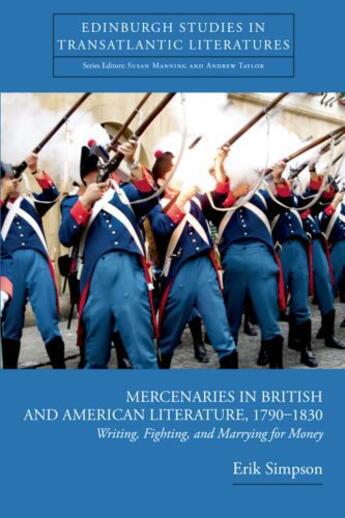-
Nombre de pages : (-)
-
Collection :
(-)
-
Genre :
(-)
-
Thème :
Non attribué
-
Prix littéraire(s) :
(-)
Résumé:
In Mercenaries in British and American Literature, 1790-1830, Erik Simpson proposes the mercenary as a meeting point of psychological, national, and ideological issues that connected the severed nations of Britain and America following the American Revolution.When writers treat the figure of the... Voir plus
In Mercenaries in British and American Literature, 1790-1830, Erik Simpson proposes the mercenary as a meeting point of psychological, national, and ideological issues that connected the severed nations of Britain and America following the American Revolution.When writers treat the figure of the mercenary in literary works, the general issues of incentive, independence, and national service become intertwined with two of the well-known social developments of the period: an increased ability of young people to choose their spouses and the shift from patronage to commercial, market-based support of authorship. While the slave, a traditional focus of transatlantic studies, troubles the rhetoric of liberty through a lack of autonomy and consent, the mercenary raises questions about liberty by embodying its excess. Simpson argues that the mercenary of popular imagination takes monstrous advantage of modern freedoms by contracting away the ostensibly natural and foundational bonds of civil society.Substan
Donner votre avis








